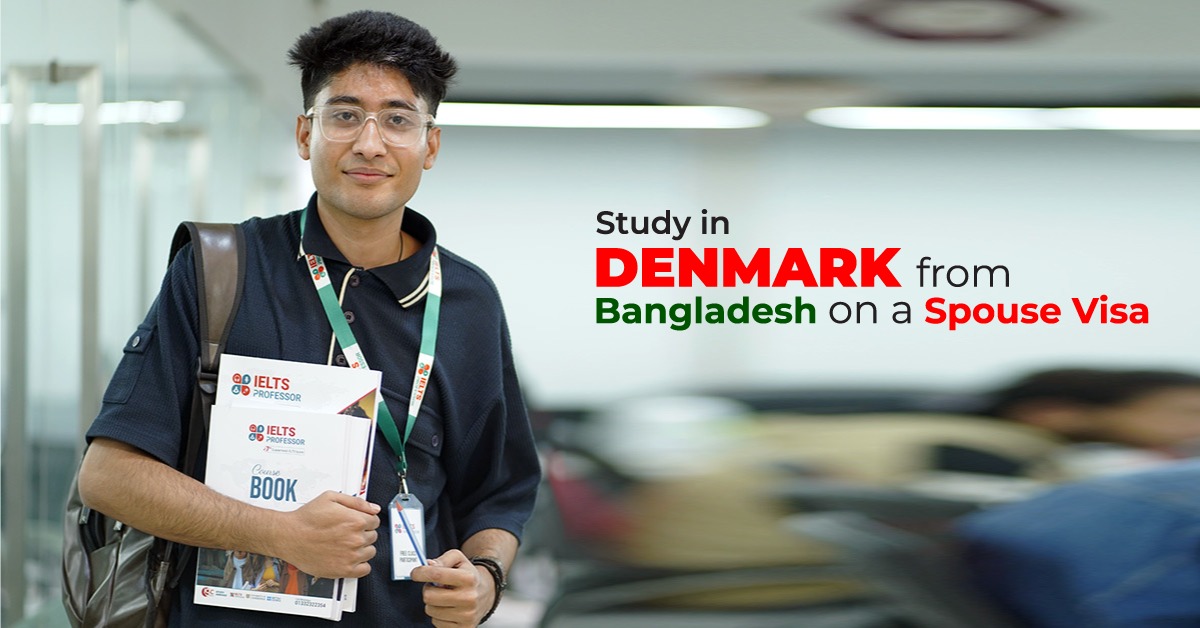
Denmark, renowned for its quality education system and high standard of living, has become an increasingly popular destination for international students. For Bangladeshi students, the dream of studying abroad often feels like a distant reality due to numerous hurdles. However, the path becomes more accessible when paired with the opportunity of moving on a spouse visa. Imagine pursuing a world-class education in Denmark while having the support of your spouse by your side—a combination that not only enhances your academic journey but also strengthens your personal life. This guide delves into the intricate process of studying in Denmark from Bangladesh on a spouse visa, unraveling the challenges, sharing real-life stories, and offering actionable insights to turn this aspiration into reality.
Denmark’s education system consistently ranks among the best globally. Universities like the University of Copenhagen and Aarhus University offer cutting-edge programs, particularly in engineering, social sciences, and business. The country's emphasis on innovation and critical thinking equips students with skills that are highly sought after worldwide. Additionally, many programs are offered in English, eliminating language barriers for Bangladeshi students.
Consider Sazzad and Farah’s story: Sazzad, a young professional from Dhaka, received a job offer in Copenhagen. His wife, Farah, decided to leverage the spouse visa to enroll in a Master’s program in International Business. This dual benefit allowed them to build their careers while enjoying Denmark’s vibrant culture together.
Navigating the Spouse Visa Process for Bangladeshi Students
Securing a spouse visa while planning to study in Denmark involves several steps. Here is a breakdown:
Key Challenges and How to Overcome Them
Financial Constraints
Studying abroad is expensive, and Denmark is no exception. Tuition fees for international students range from €6,000 to €16,000 per year, depending on the program. Additionally, living costs in Denmark are among the highest in Europe, averaging €1,200 monthly.
Solution: Many Bangladeshi students, like Tasnim, balance part-time jobs alongside their studies. Denmark’s student-friendly policies allow 20 hours of work per week, helping cover living expenses.
Cultural Differences
Adapting to Denmark’s egalitarian culture can be challenging for students from Bangladesh. For instance, informal relationships between professors and students might seem unusual initially.
Solution: Engage in cultural exchange programs and attend university-hosted events to acclimate quickly. Personal stories from alumni often highlight how these activities foster a sense of belonging.
Academic Adaptation
Denmark’s education system emphasizes self-study and group projects, a shift from the traditional lecture-based approach in Bangladesh.
Solution: Enroll in preparatory courses or workshops offered by universities to ease the transition.
Advantages of Studying in Denmark on a Spouse Visa
Real-Life Example: Aisha and Karim’s Journey
Aisha and Karim’s story is an inspiring example of perseverance and strategic planning. Karim, an IT specialist, relocated to Denmark for a tech position. Aisha, eager to advance her career, used the spouse visa to enroll in a Master’s program in Data Science. Initially daunted by the high living costs, the couple created a strict budget and utilized Denmark’s efficient public transport system to save money. Their shared experiences of exploring Danish landmarks like Tivoli Gardens strengthened their bond and made the transition enjoyable.
Practical Tips for Bangladeshi Students
Frequently Asked Questions (FAQs)
1. Can I work while studying on a spouse visa in Denmark?
Yes, spouse visa holders can work part-time, allowing students to manage living expenses effectively.
2. Do I need to learn Danish to study in Denmark?
No, many programs are in English. However, learning Danish is beneficial for daily life.
3. What are the living costs in Denmark?
On average, living costs are around €1,200 per month, including accommodation, food, and transportation.
4. Are there scholarships for Bangladeshi students?
Yes, options like the Danish Government Scholarships are available for eligible students.
5. How long does the visa process take?
It usually takes 60-90 days, so plan accordingly.
6. Can I bring my children along on a spouse visa?
Yes, dependent children can accompany you, provided you meet the financial requirements.
7. What documents are required for the visa?
Marriage certificate, proof of financial support, admission letter, and your spouse’s residence permit are essential.
8. How can I find part-time jobs in Denmark?
tilize university job portals, local job boards, and networking events.
9. Is Denmark safe for international students?
Denmark is one of the safest countries globally, with a low crime rate.
10. What are the top universities in Denmark?
Leading institutions include the University of Copenhagen, Aarhus University, and Technical University of Denmark.
Summary
Studying in Denmark from Bangladesh on a spouse visa is an enriching experience that combines academic growth with cultural exploration. While challenges such as financial constraints and cultural differences exist, strategic planning, adaptability, and support from your spouse make this journey manageable and rewarding. By leveraging the unique opportunities Denmark offers, you can lay the foundation for a successful future.
Denmark awaits – are you ready to take the leap?